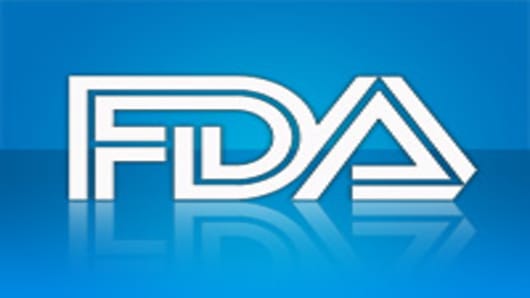Newly confirmed FDA Commissioner Dr. Peggy Hamburg has got her work cut out for her. The FDA is responsible for policing a wide array of consumer goods, from foods and pharmaceuticals to cosmetics and medical devices.
Dr. Hamburg has vowed to enhance the FDA’s focus toward improving public health. That’s the right move. But the agency has limited resources, so she’ll have to identify policies that can do the most for the greatest number of Americans.
Here are three that should top her list:
First: honestly addressing foreign drug importation.
Some of our elected representatives, including the President, have signaled that they’d like to allow importation as part of an effort to lower prescription drug prices.
Bad idea.
If Dr. Hamburg is committed to protecting public health, she’ll resist these efforts. Most foreign countries don’t adhere to the same rigorous drug safety standards as the United States. So there’s a danger that imported drug shipments will contain medicines that are substandard and even counterfeit.
In 2003, the FDA found that 16 percent of drugs shipped into America from Canada violated federal safety statutes. A year later, FDA investigators bought three popular drugs from a variety of online pharmacies claiming to be in Canada. Every one of the drugs failed tests for potency and purity.
The situation across the Atlantic is no better. Recently, the Irish drug enforcement agency announced that it had confiscated more than 1.7 million pounds of counterfeit and illegal drug packages.
And remember, there’s no such thing as drug “reimportation.” That’s putting lipstick on a pig.
This isn’t about making available to Americans the “same” drugs being sold to our neighbors to the north. This is about drugs from a multitude of nations (most notably those of the European Union). That means a drug that is said to come “from Great Britain” could just as easily originate from places such as Greece, Portugal, Latvia, or Malta. And basic economics dictates that goods from lower cost markets flow into higher cost ones. (In fact, more than 20 percent of all prescription medicines sold in the United Kingdom are “parallel imported” from lower cost nations within the European Union.) These drugs, arbitraged through Canadian internet pharmacies and then resold to Americans may be dubbed “reimported” but that’s just plain misleading because these off-the-back-of-the-truck medicines are not even legal for sale in Canada. So much for “the same drugs” as you can buy at a pharmacy in Toronto.
Dr. Hamburg should recognize that the FDA can’t conceivably guarantee the safety of imported drugs and encourage Congress not to open the American market to dangerous counterfeit drugs.
The FDA should also encourage the development of 21st century biologics, the cutting-edge pharmaceuticals derived from living proteins. Biologics have proven effective at treating some of the deadliest diseases, including multiple sclerosis, cancer and AIDS. Future biologic innovation could lead to therapies —or even cures — for diseases now considered untreatable.
Congress is considering several bills that would allow for the approval of copies of biologics or biosimilars. Like generic versions of traditional chemical drugs, biosimilars would be cheaper than their brand-name counterparts. But unlike conventional generics, biosimilars aren’t exact copies of the drugs they mimic.
It’s impossible to replicate a biologic because of the complexity of manufacturing something using living cells.
So biosimilars often contain small — but important — chemical differences from the drugs on which they are based.
Therefore, biosimilars should be required to undergo independent safety trials before hitting the market.
One of the bills being considered by Congress, the “Pathway for Biosimilars Act,” stipulates just that. In the interest of patient safety, Dr. Hamburg should support this measure.
Finally, the new FDA chief should continue her predecessor’s commitment to the Critical Path Initiative.
This five-year-old program aims to expedite the drug-development process. Too often, steps in the approval chain are so costly or confusing that it takes longer than necessary to turn scientific discoveries into marketable medicines. The Critical Path Initiative employs technologies like genomics to improve the tests used to predict the safety and efficacy of medical products.
The new FDA commissioner faces unprecedented challenges. But by focusing on these three issues, she can ensure that American citizens remain safe—and that they continue to benefit from modern medical research.
_________________________
Peter Pitts is a Partner/Director of Global Healthcare at Porter Novelli PR. He is also President and co-founder of the Center for Medicine in the Public Interest. From 2002-2004, Pitts was FDA’s Associate Commissioner for External Relations, serving as senior communications and policy adviser to the Commissioner.



